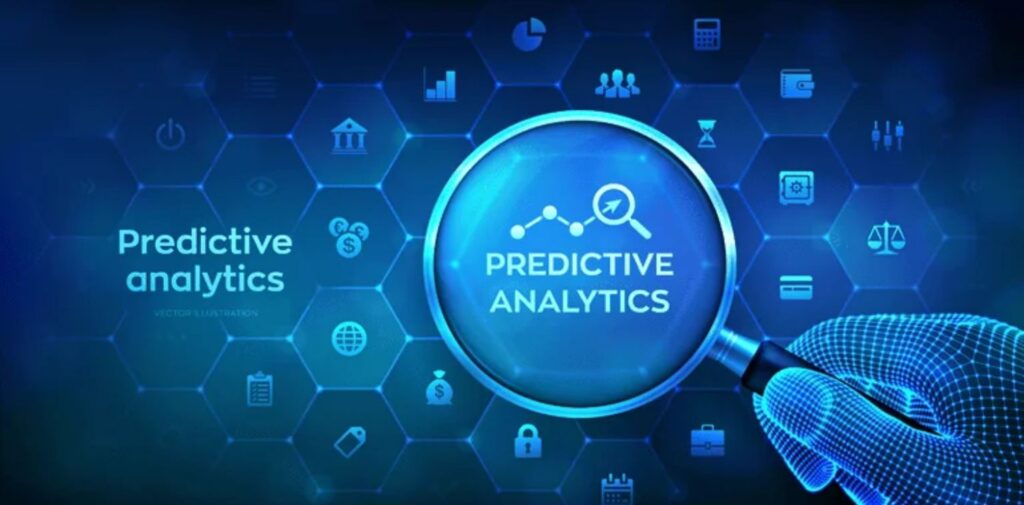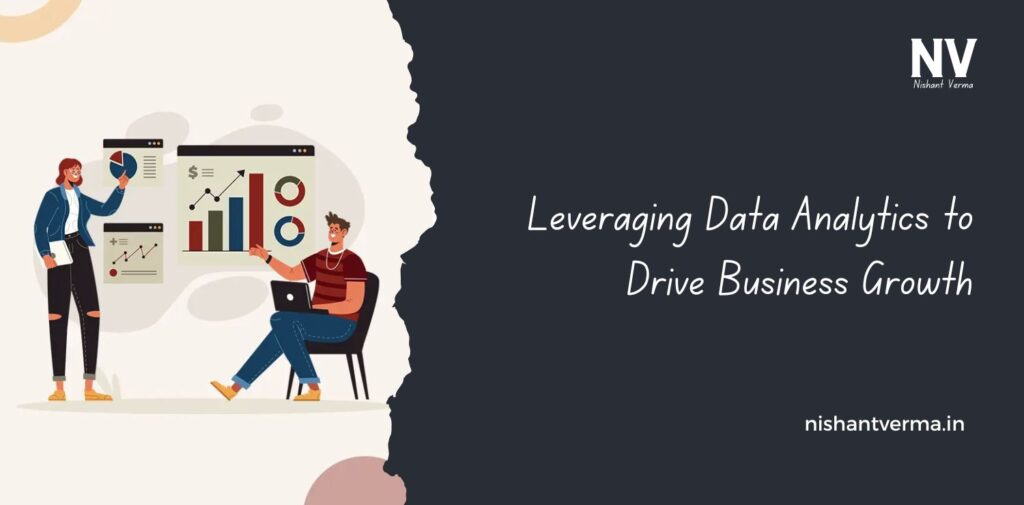In today’s fast-paced digital world, businesses are constantly seeking ways to grow and stay ahead of the competition. One powerful tool that has emerged to help businesses achieve these goals is data analytics. But what exactly is data analytics, and how can it be used to fuel business growth? In this article, we will break down the concept of data analytics, explain its importance, and show you how it can be applied to boost business success.
What is Data Analytics?
At its core, data analytics refers to the process of examining data, raw facts and figures, and turning it into meaningful insights that can help businesses make better decisions. Think of it as the process of looking at a large pile of puzzle pieces and then putting them together to see the full picture.
Let’s take an example to explain this more clearly. Imagine you run a coffee shop. You may have hundreds of customers coming in every day, buying different products. Without data analytics, you might just see a crowd of people, but with data, you can gather important details like:
- What time of day do people usually buy coffee?
- What type of coffee is the most popular?
- Are people buying more food with their drinks or just coffee?
By collecting and analyzing this information, you can make better decisions, like which products to offer more of or when to schedule more staff. This is what data analytics can do for any business.

Why is Data Analytics Important for Business Growth?
In the past, business decisions were often based on gut feeling or personal experience. However, this can be risky because personal judgment may not always be accurate. Data analytics provides concrete evidence to guide decisions, making them more informed and reliable.
Here are some reasons why data analytics is crucial for business growth:
- Better Decision-Making: Data analytics allows businesses to make decisions based on facts, not guesses. By looking at actual customer behaviour, market trends, and operational data, businesses can take smarter, more informed steps.
- Customer Insights: Understanding your customers is key to offering products or services they truly want. These analytics helps you segment your audience, discover patterns, and find out what makes your customers tick. This means you can deliver personalized experiences that increase customer satisfaction and loyalty.
- Increased Efficiency: With the help of data analytics, businesses can streamline their operations, reduce waste, and increase productivity. For example, data can highlight areas where a company is overspending or underperforming, enabling it to cut costs or focus on more profitable areas.
- Identify New Opportunities: By analyzing trends in the market, customer feedback, and competitor performance, It can help uncover new growth opportunities. Whether it’s launching a new product line or entering a new market, data can provide valuable insights to guide your decisions.

How Can Data Analytics Drive Business Growth?
Now that we understand what data analytics is and why it’s important, let’s look at how you can leverage it to drive business growth.
Customer Segmentation and Targeting
One of the first ways data analytics can benefit your business is through customer segmentation. This means dividing your customers into groups based on shared characteristics such as age, location, buying habits, or interests.
For example, let’s say you run an online clothing store. By analyzing your sales data, you might discover that:
- Young women aged 18-25 are buying casual dresses during the summer months.
- Men aged 30-40 prefer formal wear for office use.
With this information, you can tailor your marketing efforts to target each group more effectively. You can create specific advertisements, send personalized offers, or even stock your store with the products your customers are more likely to buy. This targeted approach will not only attract more customers but also increase your sales.

Predictive Analytics for Future Growth
Predictive analytics is all about using past data to predict future trends and outcomes. This is extremely helpful for businesses that want to stay ahead of the competition.
Imagine you are the owner of a retail store. By analyzing data on past sales, customer foot traffic, weather patterns, and even holiday seasons, you can predict when you’ll have a spike in customers. For example, if you know that sales increase by 20% every December due to the holiday season, you can prepare by stocking up on popular items, hiring extra staff, or planning special promotions. Predictive analytics helps you be proactive, rather than reactive.
Improving Operational Efficiency
Data analytics is not just for understanding customers; it’s also incredibly useful for improving internal processes. With the right data, you can identify inefficiencies within your business operations and optimize them for better performance.
For instance, if you run a manufacturing business, you can use data to monitor how long it takes to produce a product, identify bottlenecks in the production line, and even determine the optimal amount of raw materials to purchase. By reducing delays and minimizing costs, you can improve productivity and increase profitability.
Enhancing Marketing Efforts
Marketing is one of the most important aspects of growing a business.These analytics helps improve marketing campaigns by identifying which strategies are working and which are not.
Let’s say you run an e-commerce website and you’re running a paid advertisement campaign on social media. With data analytics, you can track the performance of each ad, see how many clicks and purchases each one generates, and calculate the return on investment (ROI) for each campaign. You might find that certain ads are not reaching the right audience, or that one type of product is more popular with a specific demographic. With this information, you can adjust your ads to be more effective and cost-efficient.
Real-Time Decision Making
In today’s world, being able to make quick decisions can be the difference between success and failure. Data helps businesses make real-time decisions by providing up-to-the-minute information on sales, customer behaviour, and other key metrics.
For example, a restaurant owner might use real-time data to determine how many customers are coming in at different times of day. If the data shows that a particular day is unusually slow, the restaurant owner can decide to offer a special deal to attract more customers, like a discount on meals or free drinks. Real-time data allows for quick changes that can positively impact business outcomes.

Measuring Performance and ROI
Finally, data analytics allows businesses to track their performance and measure return on investment (ROI) for various initiatives. Whether you’re launching a new product, running a marketing campaign, or improving operational efficiency, measuring the success of these activities is crucial to understanding whether they contribute to business growth.
For example, if you spend money on a marketing campaign, These analytics can tell you how many people saw your ad, how many clicked on it, and how many made a purchase. This helps you understand if the campaign was worth the investment or if you need to tweak it for better results.
Conclusion
Data analytics is no longer just a tool for large corporations; it’s something every business, big or small, can use to drive growth and success. By collecting and analyzing data, businesses can gain valuable insights into customer behaviour, improve efficiency, predict future trends, and make smarter decisions.
To get started, businesses should focus on understanding their data, using tools to analyze it, and applying insights to different areas like marketing, operations, and customer experience. With the power of data analytics at your fingertips, you can unlock new growth opportunities and stay ahead in a competitive marketplace.
In the end, data analytics isn’t just about numbers and graphs, it’s about making better, more informed decisions that will help your business grow, thrive, and succeed in the long term.




